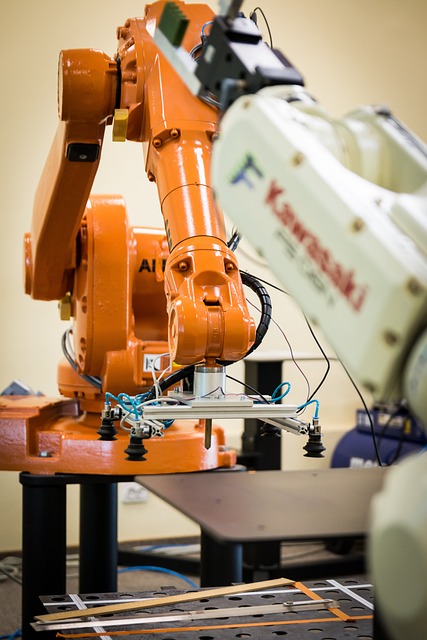The Role of AI in Automating E-Commerce Operations
Artificial Intelligence (AI) emerges as a transformative force in the e-commerce sector, revolutionizing how businesses operate online. The sheer magnitude of e-commerce transactions taking place every second makes it essential for businesses to adopt strategies that enhance operational efficiency. This is where AI automation comes into play. AI automation encompasses a variety of technologies that enable systems to perform tasks with minimal human intervention. In e-commerce, this means streamlining operations, improving customer interactions, and ultimately driving sales. With a growing reliance on technology, understanding AI’s role in automating e-commerce operations becomes crucial for online business owners who want to stay competitive.
Understanding AI Automation in E-commerce
AI automation in e-commerce refers to using machine learning algorithms and AI tools to take over repetitive tasks. These tasks can range from inventory management to customer service. Imagine a bustling online store processing hundreds of orders daily. In such scenarios, human oversight alone can lead to inefficiencies and errors. For example, AI-driven chatbots can handle customer inquiries round the clock, providing instant answers without waiting times. This not only improves customer satisfaction but also allows human staff to focus on complex issues that require a personal touch. AI automates everything from managing inventory levels to processing payments, meaning that businesses can operate more smoothly and efficiently.
Moreover, AI has the capacity to analyze vast amounts of data in real time. For instance, it can examine customer purchase patterns and preferences. This insight enables businesses to tailor their marketing efforts and product offerings much more effectively. By understanding what customers are looking for, e-commerce businesses can anticipate trends and adjust their inventory accordingly. This level of automation and insight fuels online business efficiency, allowing companies to market effectively and meet customer needs proactively.
Enhancing Customer Experience through AI
One of the standout features of AI in e-commerce is its ability to significantly enhance the customer experience. The first point of interaction for many customers is through chatbots. Enterprise-level chatbots can simulate human conversation, answering queries about products, shipping, account management, and more. By utilizing natural language processing, these bots can converse in an intuitive manner, making them seem personable rather than robotic. This level of service plays a crucial role in converting visitors into customers, as it immediately addresses their concerns and queries.
Beyond chatbots, AI can personalize the shopping experience. Consider how Netflix recommends shows based on past viewing history. Similarly, e-commerce platforms can suggest products based on previous purchases or browsing behavior. This personalized touch not only encourages additional purchases but also builds a sense of loyalty with customers. Customers feel understood and catered to, which is a significant factor in their decision to return to a site. AI-driven recommendation engines analyze data and give suggestions tailored to individual user preferences, thereby improving online business efficiency.
AI in Inventory Management
Inventory management is a critical component of e-commerce operations, and here, AI truly shines. Traditionally, businesses maintained their inventories based on manual counts and predictions about customer behavior. Unfortunately, these methods often led to either overstocking or stockouts. However, AI automation brings a revolutionary approach to inventory management—predictive analytics. By analyzing sales trends, seasonal patterns, and even market conditions, AI systems offer forecasts on what items need to be restocked and when. Such precision can save companies a significant amount of money and resources.
Additionally, AI-driven solutions can help manage warehousing operations. For example, with real-time data analytics, businesses can organize their warehouse layouts more effectively. AI can determine where items should be stored for optimal retrieval, thus speeding up the fulfillment process. When an order comes in, AI can streamline the picking process, often suggesting the best paths for warehouse staff or even guiding automated robots that do the picking. As e-commerce continues to proliferate, maintaining efficient inventory management directly correlates with an online business’s success.
Streamlining Marketing Strategies Using AI
Marketing is an area where AI automation really demonstrates its prowess. Through AI, e-commerce businesses can analyze customer data at an unprecedented scale. This analysis allows for deeper insights into customer behavior and preferences. For example, AI tools can segment customers based on their buying patterns, demographics, or engagement levels. As a result, companies can create tailored marketing campaigns that resonate with specific audiences. Instead of using a one-size-fits-all approach, businesses can send personalized emails that feature products a customer is likely to be interested in, increasing the chance of conversion.
Moreover, AI automation aids in optimizing ad spending. Machine learning algorithms can predict which ads are likely to perform best based on historical data. Thus, businesses can allocate their marketing budgets more effectively, focusing on the initiatives that yield the highest return on investment. Imagine launching a campaign that not only reaches customers but also engages them effectively with beautifully tailored ads based on their unique preferences. AI empowers businesses to achieve this level of targeted marketing, thus enhancing online business efficiency.
AI-Driven Analytics and Reporting for Better Decision Making
At the heart of effective e-commerce operations lies data. E-commerce platforms generate enormous amounts of data every minute. AI automation helps to transform this data into actionable insights. Businesses can utilize AI-driven analytics tools to capture meaningful trends, identify operational bottlenecks, and even monitor customer satisfaction in real time. These insights can drive strategic decisions, such as identifying which products are underperforming and might need a marketing boost or which customer segments are most valuable.
Furthermore, reporting becomes much more efficient with AI. Instead of spending hours compiling data and preparing reports, AI systems can automatically generate detailed reports in real time, allowing leaders to make swift decisions based on the latest information. This ability to act quickly not only makes a business agile but also proactive in addressing challenges or capitalizing on emerging opportunities. The synergy between AI-driven analytics and operational efficiency forms the backbone of a successful e-commerce strategy.
The Future of AI in E-Commerce Operations
Looking ahead, the potential impacts of AI automation on e-commerce operations seem boundless. As technology evolves, we can expect AI to take on even more complex roles in online businesses. New algorithms will enhance personalization, making the shopping experience ever more seamless and intuitive. For example, imagine virtual assistants making product recommendations not just based on history but also on mood or context, pulling from expansive data sources—this is closer to reality than we think.
Moreover, advancements in artificial intelligence will lead to even smarter inventory management systems. We could see systems that autonomously adjust inventory levels based on predictive modeling of market trends. With the integration of AI in supply chains, e-commerce can become even more streamlined and robust. The potential for AI to further enhance customer experience through voice commerce and augmented reality shopping is also significant. Customers could virtually try on clothes or see how furniture fits in their living space, creating an engaging online shopping environment.
In conclusion, businesses that embrace AI automation will be better positioned in the competitive e-commerce landscape. By leveraging AI for operational efficiencies, customer service, marketing, and data analytics, online businesses can not only improve their bottom line but also provide exceptional shopping experiences that encourage customer loyalty. The time for such innovations is now, inviting early adopters to reap the benefits of embracing AI.
FAQ
How does AI automation improve customer service in e-commerce?
AI automation enhances customer service through chatbots that provide instant responses to customer inquiries, improving customer satisfaction. Additionally, AI can analyze customer behavior to offer personalized recommendations and solutions, creating a better shopping experience.
What are some examples of AI tools used in e-commerce?
Common AI tools in e-commerce include chatbots for customer service, recommendation engines for personalized marketing, and predictive analytics for inventory management. These tools help businesses streamline their operations and improve customer interaction.
How can AI assist in inventory management?
AI assists in inventory management by forecasting demand, determining optimal stock levels, and streamlining warehouse operations. This predictive capability helps businesses reduce costs associated with overstocking or stockouts.
In what ways can AI impact marketing strategies in e-commerce?
AI can significantly impact marketing strategies by analyzing customer data to create targeted campaigns, optimizing ad spending through performance predictions, and generating personalized content that resonates with specific audience segments.
What does the future hold for AI in the e-commerce sector?
The future of AI in e-commerce looks promising, with advancements leading to even smarter automation for personalized shopping experiences, improved inventory management, and innovative customer engagement options like voice commerce and augmented reality.



